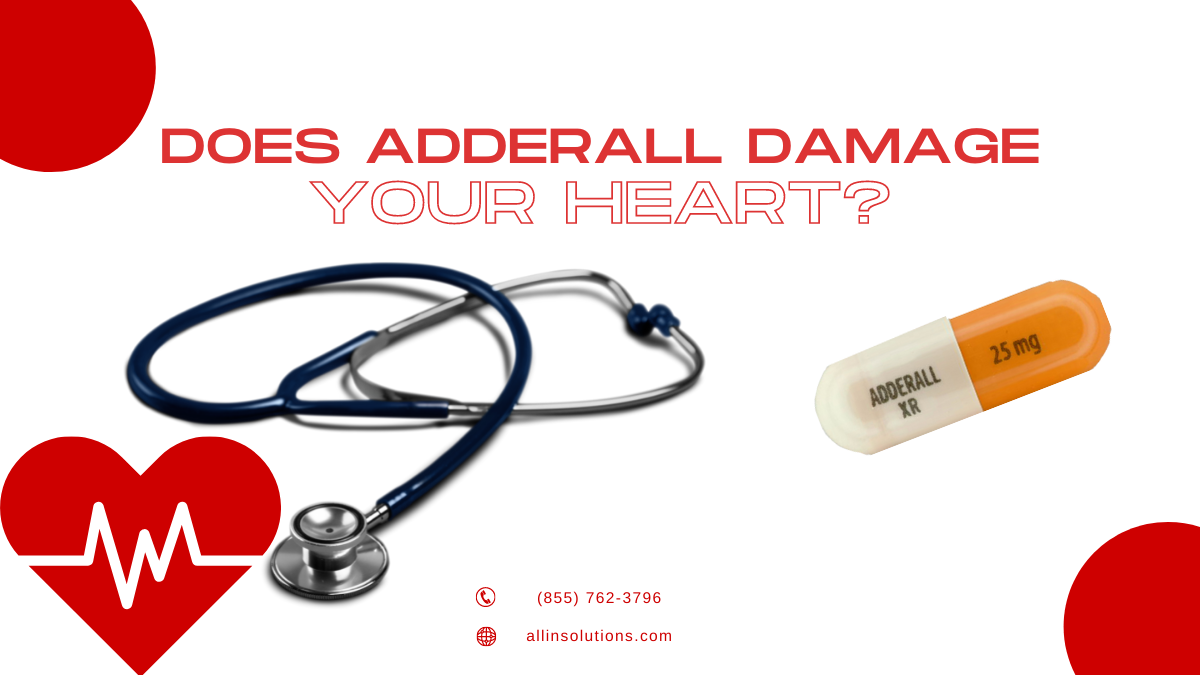Can Adderall Damage Your Heart?
Can Adderall damage your heart? Yes, it can. The drug raises your heart rate by three to six beats per minute, so you should check your pulse regularly. A normal heart rate is around sixty to eighty beats per minute. To check your heart rate, you can use a blood pressure machine that is widely available in pharmacies. The result of your reading will be two numbers: the lower number is your blood pressure, and the higher number is your heart rate.
High doses of Adderall
Taking Adderall can damage your heart in many ways. For one thing, your heart's normal rate is 60 to 100 beats per minute. High doses of Adderall can raise that number and put your whole body at risk. You may also feel nervous and tense, or your heart might beat extremely fast for no apparent reason. Your doctor will need to monitor your blood pressure carefully to rule out heart attacks and other serious health problems.
The dangers of Adderall go beyond the effects on your heart and vascular system. As a stimulant, Adderall can increase your risk of cardiovascular problems, including stroke and high blood pressure. People with cardiovascular problems are particularly susceptible to the effects of stimulants. Overuse can lead to heart failure and high blood pressure. Adderall can also increase the risk of heart failure. People with cardiovascular problems should not take Adderall unless they are medically prescribed.
When taken in large doses, Adderall can raise your blood pressure and increase your heart rate. People who use Adderall too often may experience problems with breathing. These risks are very real, especially if they take it long-term. Even if you don't have a heart condition, you can take Adderall to treat your ADHD. Just be sure to see your doctor if you suspect that your heart is atypical.

Long-term abuse of Adderall
If you are an Adderall user, you may have heard of the dangers associated with this ADHD medication. In addition to damage to your heart, this stimulant also has a host of other side effects. The physical side effects of Adderall abuse include an increased heart rate and blood pressure, as well as dangerous weight loss. If you experience any of these side effects, discontinue use and seek medical attention. Adderall abuse can also cause breathing problems, severe irritability, and nightmares. In addition, it can hinder your child's growth.
Long-term Adderall abuse has been linked to increased heart rate, high blood pressure, and heart palpitations. These symptoms increase your risk of heart attacks, heart failure, and even sudden death. If you are already experiencing heart problems, you should discuss the risks of Adderall use with your doctor before taking it. If you experience sudden or unusual chest pains, call 911 immediately and seek medical attention.
Heavy Adderall abuse can cause physical and chemical changes in the brain. This substance increases levels of dopamine, the "feel good" hormone in the brain. However, frequent changes in these levels can lead to mental and physical impairments. Additionally, Adderall can cause insomnia, which can exacerbate mental health problems. This is especially dangerous when taken for prolonged periods of time. If you're addicted to Adderall, it may be time to consider other treatment options.

Cardiomyopathy caused by Adderall
Cardiomyopathy caused by Adderall is a rare side effect of stimulants. This case report focuses on a 41-year-old man who developed acute onset heart failure and severely reduced ejection fraction. After stopping Adderall, the patient's symptoms resolved but the cardiomyopathy recurred. However, the cause of the cardiomyopathy is unknown. Regardless of whether it's an inherited condition or an additive hyperactivity disorder, it is important to understand the risks associated with Adderall use.
While the withdrawal symptoms of Adderall are usually mild and transient, they can be life-threatening and require medical attention. These symptoms can last for days or weeks. While they may not be life-threatening, alcohol can reduce the benefits of Adderall, making the condition more likely to develop. Alcohol may also cause severe side effects, including cardiomyopathy. Lastly, excessive alcohol consumption can cause withdrawal symptoms and even heart attacks.
In addition to these side effects, long-term abuse of Adderall can cause serious problems in the cardiovascular system. This drug increases the risk of high blood pressure, stroke, and heart palpitations. If taken for too long, it can also cause cardiomyopathy and necrotizing vasculitis, which cause the blood vessel walls to become inflamed. Sadly, this is a serious side effect of Adderall abuse and should never be taken lightly.

